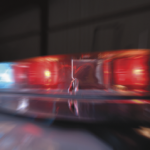Ever find it hard to get back on the trail again after a big meal? Or be hiking along and suddenly bonk?
When backpacking, when you eat can be as important as what you eat. In order to keep your body in the best shape to move up the trail, you need to eat the right thing at the right time.
Mix it up
Carbs are a popular fuel source while hiking, but it’s important to remember that eating only simple sugars without any backup will cause you to “bonk.”
While you’re busy trudging up the trail your body wants foods that don’t take too much work to process into energy. Simple sugars provide quick burning kindling for your body, but in order to have a steady stream of energy it’s a good idea to back them up with complex carbs and small amounts of slower burning protein and fat. For example, try snacking on dried fruit, sweet potato chips, nut butters, coconut butter, nuts and beef jerky throughout the hike.
Give yourself time to digest
Start moving too soon after eating a large meal and you’ll sabotage your refueling. The process of digestion requires a lot of blood flow to your stomach and intestines. This requires a trade-off; your body can shunt blood either to the major muscle groups or the stomach and intestines.
If you start hiking aggressively again too soon after a meal, your body will not be able to send enough blood to help properly digest your food. Your meal will end up sitting in your stomach like a rock instead of fueling you to greater heights. Not fun.
If you’re planning on a big meal, include time to relax and digest in your hiking schedule. Nutrient-dense meals a couple hours before you go to bed will give your body time to assimilate the materials to rebuild your cells and get you ready for another day.
Drink up!
Drink water throughout the day. Spacing out your sipping allows you to hydrate more efficiently. Your body absorbs water better in smaller amounts rather than in big gulps.
Adding an electrolyte mix to your drinking bottles can give you a nice change-up to encourage you to drink more often. Water bladders like a Camelback or Platypus have also been shown to encourage hydrating more often.
Food isn’t just fuel
Calories aren’t the only thing in food. Your body also needs the host of nutrients in food to rebuild, cleanse and repair.
Most of the dehydrated meals out there are heavy on the white rice and pasta, but pretty thin on nutrient density. Protein and fat are not only used for fuel, they’re also absolutely critical structural components of all of our cells, make up our hormones and neurotransmitters, are part of the process in liver detoxification and a myriad of other processes.
When going dehydrated I like to bring along fat (olive oil, butter or coconut oil), protein (salmon, tuna, chicken, etc) and various dried and fresh veggies and fruits (sundried tomatoes, pine nuts, cranberries, garlic and others) and healthful spices (curry, cinnamon, nutmeg, sea salt, or pepper) to add in to my dinner.
The subject deserves far more than just one bullet point, so in my next column I’ll expand on nutrient-dense










